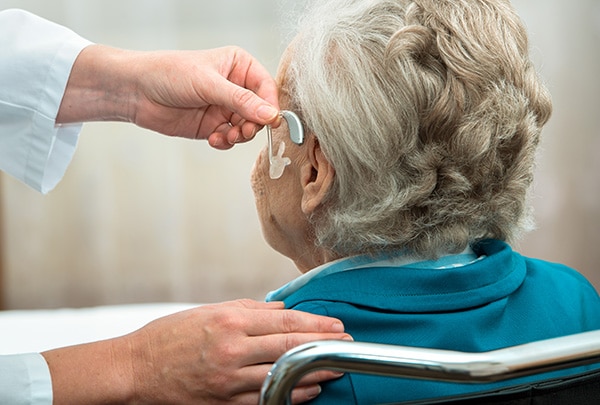
There are many reasons why you would consider getting a hearing aid. It can have a significantly positive impact on your life, after all. However, it’s also important to think about the broader implications of getting a hearing aid. For instance, it might have an impact on your status, such as whether you’re classified as living with a disability or not. In this article, we’re going to run through the ins and outs of matters related to hearing aids and disability, including whether it’s classified as one or not and different definitions of disability.
Is Wearing A Hearing Aid Classed As A Disability?
So, first of all, let’s get to the bottom of the main question. Is wearing a hearing aid classed as a disability? The answer is that no, by itself, a hearing aid is not a signifier for disability. That’s because the definition of hearing loss as a disability pertains to the extent of the hearing loss. You can have mild hearing loss and wear a hearing aid to bring your hearing back to full level, but because the loss is only mild, it wouldn’t be classed as a disability. As we’ll see later, hearing loss becomes a disability when the person is unable to hear a certain level of noise.
Different Definitions Of Disability
One of the issues in trying to classify hearing loss as a disability is that there’s no standard definition of disability. Indeed, there are multiple. So, there are instances where a person may be classified as disabled due to hearing loss, but other instances where the same person would not be classified as disabled.
In general, a disability falls under one of three categories. The impairment could be due to the physical appearance of the body. Another is when the person is unable to do certain activities due to their impairment. Another is where you’re unable to participate in all aspects of society without modifications. Hearing loss usually falls into at least one of these categories, but in many cases, it can fall under all three. In general, hearing loss is then broken down into four other subcategories: profound loss, severe loss, moderate loss and mild loss.
What Level Of Hearing Loss Classifies As A Disability?
As we mentioned earlier, different organizations tend to classify hearing loss differently. What constitutes a disability for one will not be a disability for other organizations. So, let’s think about the level of hearing loss that is needed to claim social security as a disability, which is about as good a metric as any other.
Under their guidelines, a person may be disabled if they’re unable to repeat 40% of words in a word recognition test. They may also be unable to hear sounds under 60db due to bone conduction. When air conduction is present, a hearing threshold of 90db or more. You don’t have to qualify for all three of these criteria; indeed, the presence of any of them could be enough to be classified as disabled.
How You Should Treat It
Of course, the criteria for what classifies as a disability should not be the only element that people look at, least of all the people who are experiencing it themselves. If you have any level of hearing loss, it’s wise to treat it with the seriousness of a disability. That’s because the earlier that you can take action, the better you’ll be able to hear and the more you’ll be able to live your best life. In some cases, hearing loss can get worse if it’s not treated quickly. That’s why any reduction in your ability to hear should be taken seriously. It’s normal for people to ignore the early signs of hearing loss because it’s not something that can be seen in the same way as, say, a more obvious disability. But it may still be a disability.
Regardless of whether it’s classed as a disability or not, you’ll want to work with an audiologist if you’re experiencing any level of hearing loss. You’ll find that the earlier that you visit an audiologist, the easier it will be to manage your hearing loss. If you’re ready to have a hearing test, then be sure to get in touch with us here at Kampsen Hearing. You can book an appointment for your comprehensive hearing test by giving us a call at (813) 369-5692.